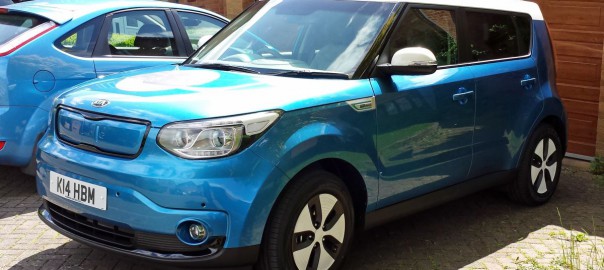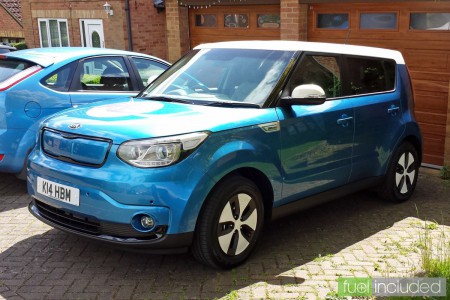Are electric cars the future? It’s a subject that’s very much open to debate. Some drivers are absolutely sold on the idea, while others question their limited range and how green they really are.
The same is true with manufacturers. A few are jumping head first into the electric car revolution, while others are avoiding it in favour of small capacity, turbocharged petrol engines, or even hydrogen power. Some, like Kia, are being cautious, dipping their toes in the water and seeing what happens.
This explains why the Korean carmaker has electrified its Soul mini-SUV, but plans to sell it in very small numbers. There’s no fancy new production line – all Soul EVs are made on the same line as the regular Soul, in an attempt to keep costs down, and just 5,000 a year are expected to be built. And here’s the clincher: no more than 200 are expected to come to the UK in the first year of production.
The reason for this? “Some manufacturers are flooding the market,” says Kia. “They’re selling electric cars to people whose lifestyles aren’t suited to electric cars, and it’s damaging their reputation.” This leads to tales of range-anxiety, and poor residual values, which Kia wants to avoid.
What’s the Kia Soul EV like to drive?
Central London isn’t an obvious place for a car launch, but it really flatters the Soul EV. Threading it through traffic, instant torque available whenever you press the accelerator, it’s hard to deny an electric car is second only to a jetpack in conditions like this.
While adapting a ‘regular’ car might seem an easy way of offering an electric vehicle, it does present some challenges. For a start, there are the big, heavy batteries that need putting somewhere. In this case, they’re hidden under the floor. And then refinement can be tricky. A combustion engine does a great job of drowning out noises – remove that, and even the slightest noise can prove irritating.
But Kia’s done a commendable job. There are no battery whines sometimes associated with electric cars, and road noise is minimal (although, as hard as we tried, we couldn’t get near to the Soul’s 90mph top speed in central London). What’s really impressive is how well the Kia Soul EV rides. The extra 274.5kg from its batteries could easily result in a crashy ride, but Kia’s tweaked the springs to take the extra weight into account, and it deals with bumps and potholes exceptionally well.
Charging using a domestic power supply takes 10 – 13 hours from empty to full, but this can be reduced to five hours using a public fast-charge point. Alternatively, using a public rapid charger, it can be boosted to 80 per cent charge in just over half an hour. From a full charge, expect to get a range of around 132 miles – less than a petrol or diesel car, obviously, but enough for most urban journeys.
Read more: Motoring Research

